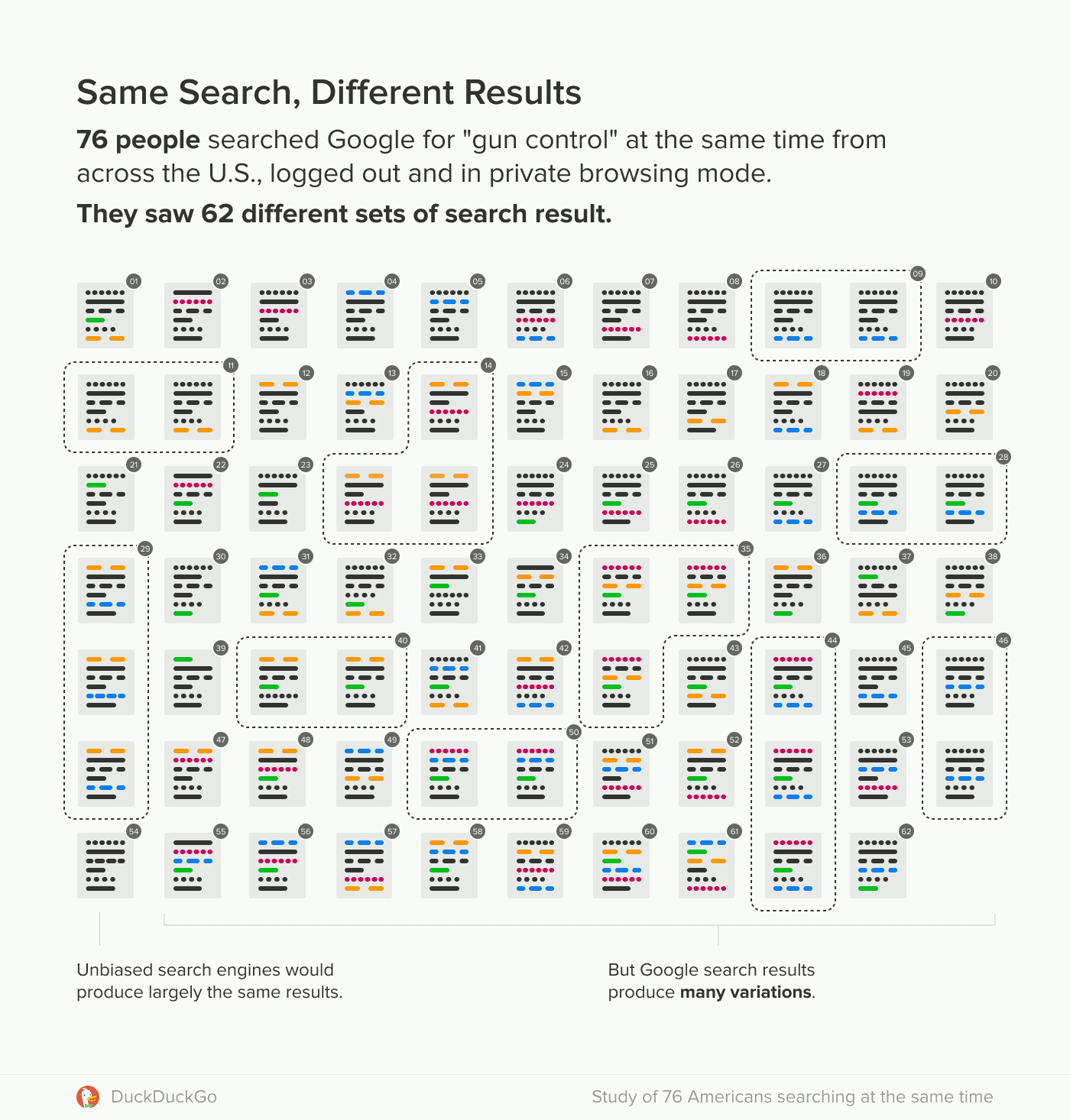by Martin Brinkmann on December 06, 2018 in Google – Last Update: December 06, 2018 – 12 comments
Search engine DuckDuckGo published the findings of an experiment that it conducted earlier this year on the company’s Spread Privacy website.
The company wanted to to determine whether Google Search, the world’s largest search engine, applied filter bubbles to signed out users as well.
Filter bubble refers to displaying results to searchers based on information known about them. Information may include the location, device and software, previous searches, activity, or purchases.
Filter bubbles put searches in an echo chamber as it delivers results to them that they may look more favorable upon. Apart from making it very easy to manipulate searchers, it is also detrimental when it comes to the forming of an opinion about a particular subject.
DuckDuckGo asked participants of the experiment to conduct a series of searches at the same time and sequence, logged out, in private browsing mode and in normal (logged out) browsing mode, from the United States. Participants were asked to search for “gun control”, “immigration”, and “vaccinations” on Google Search in the United States.

Top findings:
- Most participants saw unique results.
- The layout of results was often different, e.g. with news modules or video results.
- People where shown different news and video sources.
- Private browsing mode does not appear to reduce the filter bubble by a lot, if at all.
Unique results were displayed for 68%, 57% and 92% of all participants in private browsing mode, and for 59%, 63% and 92% in normal browsing mode.
One could argue that the variation was caused by a searcher’s location in the United States. DuckDuckGo accounted for time and location of the search. For time, by letting all participants search at the same time, and for location, by grouping all local results together as a single Local Source result.
The researchers discovered that Private Browsing Mode and being logged out does not reduce the filter bubble significantly. An average of 3 domain changes where detected when two random private mode results were compared.
Caveats
The study suggests that Google Search displays a different set of results to users which makes it more difficult for searchers to form educated opinions about a subject and opens the door for manipulation. In other words: the Google filter bubble is real, even for signed out users and incognito users.
The study was conducted by just 87 participants in the United States. That’s a low number and it is possible that results would be different if thousands of users were to run searches at the same time.
Apart from that, there is still the possibility that Google is testing results heavily by pushing different sets of results and features to users.
The company may use location, e.g. the city or region, browser, platform, and other factors to provide results. One example: the different news sources displayed to users could be based on a list of preferred news sources by region.
Back in 2011, Eli Pariser held a TED Talk in which he stated that Google was using 57 different signals alone for users not signed in to Google. These signals play a part in delivering results to users and may explain the differences at least partially.
Closing Words
It would have been interesting if the participants would have weighted individual results to determine whether Google’s algorithm picks results that have the highest chance of being the most favorable to the searcher.
Privacy-focused search engines like Startpage or DuckDuckGo promise that they don’t use filter bubbles. Check out these tips, this and these, for Startpage search.
Now You: What is your take on the study? Which search engine do you use primarily?